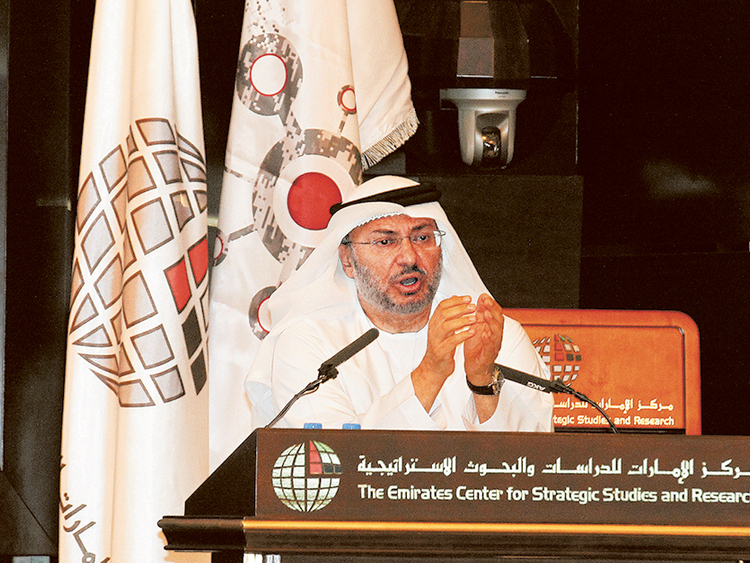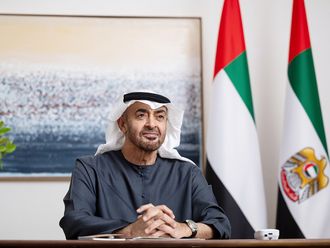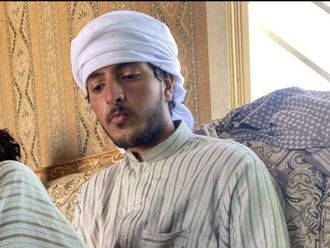
Abu Dhabi: The war on terrorism will wage for many years to come and our efforts to build a moderate Arab bloc should continue, Dr Anwar Mohammad Gargash, Minister of State for Foreign Affairs, told a regional military conference yesterday (Sunday).
“The war against terrorism and violence is a long war, unfortunately, and will wage for many years to come. So our efforts to build a moderate Arab bloc should continue,” Dr Gargash told the Leadership Summit: Future Warfare, co-organised by the Ministry of Defence and the Emirates Centre for Strategic Studies and Research.
Dr Gargash added that we should closely monitor the international scene — whether the US foreign policy sees no change and we will witness policies similar to what we have had during [President Barack Obama’s] eight-year term in office or we will see a timid return of the United States in an attempt to find a solution to the region’s problems.
“We should also see how the Russian role will be supportive of the American efforts and whether Moscow will stop attempts to prove that it is a key player in the region,” he said.
Dr Gargash said repercussions of the war in Syria will continue for years to come. The human toll and suffering are unprecedented, but the UAE affirms its commitment.
“The tragedy is that we see no end in sight. Awaiting international action and genuine political progress, we must work on the humanitarian dimension,” Dr Gargash said.
General John R. Allen, former special presidential envoy to the global coalition to counter Daesh, agreed and said the war against Daesh might end physically, but unless the underlying social circumstances are addressed, it can go on forever.
“Around the globe, the events of recent decades have demonstrated the changing character of war. Through the rise of technology, non-state actors have become empowered relative to states, and both these and some states seek to exploit ambiguity to function for long periods in grey zones of violence and coercion short of conventional war,” he said.
He added in this environment, sophisticated information operations are a powerful tool of all parties to a conflict. The Middle East may be particularly prone to this type of conflict and must develop a comprehensive response to it, while remaining resilient and agile enough to survive and adapt quickly to the strategic surprises that will inevitably emerge. He praised the UAE’s resilience and agility in this regard.
Professor John Ballard, dean of the National Defence College, told the conference the UAE has an enviable history of successful projections of national power — in Kuwait, in Bosnia, in Afghanistan and, more recently, in Libya and Yemen, and this is exactly the right time to think deeply about the risks and opportunities, challenges and threats of conflict outside the homeland.
“Expeditionary warfare is perhaps the most risky and costly form of war … and to be successful nations must conduct such conflicts with strategic perspectives always in mind,” Ballard said.
He added the 1991 operations by coalition forces following six months of international and intergovernmental coordination quickly and effectively liberated Kuwait; unfortunately lessons are not always well learnt, even when many of the same people are involved. Twenty-one years later, George W, Bush and many of the same key advisers made poor assumptions and significant mistakes in planning which resulted in a massively effective, some would now say catastrophically effective military operation that felled a government but failed to deliver any effective liberation afterwards and, in fact, destroyed the regional balance of power.
“Unlike the poor assumptions, building relationships and establishing secure bases in advance of expeditions is crucial. This is a major reason for the Peninsula Shield Force, but Phase Zero activities must be much broader than just military preparation; coalitions are only effective if they function as teams and expeditions require a full range of basing and legal support mechanisms [to name only a few coordination examples] to be successful,” Ballard said.













